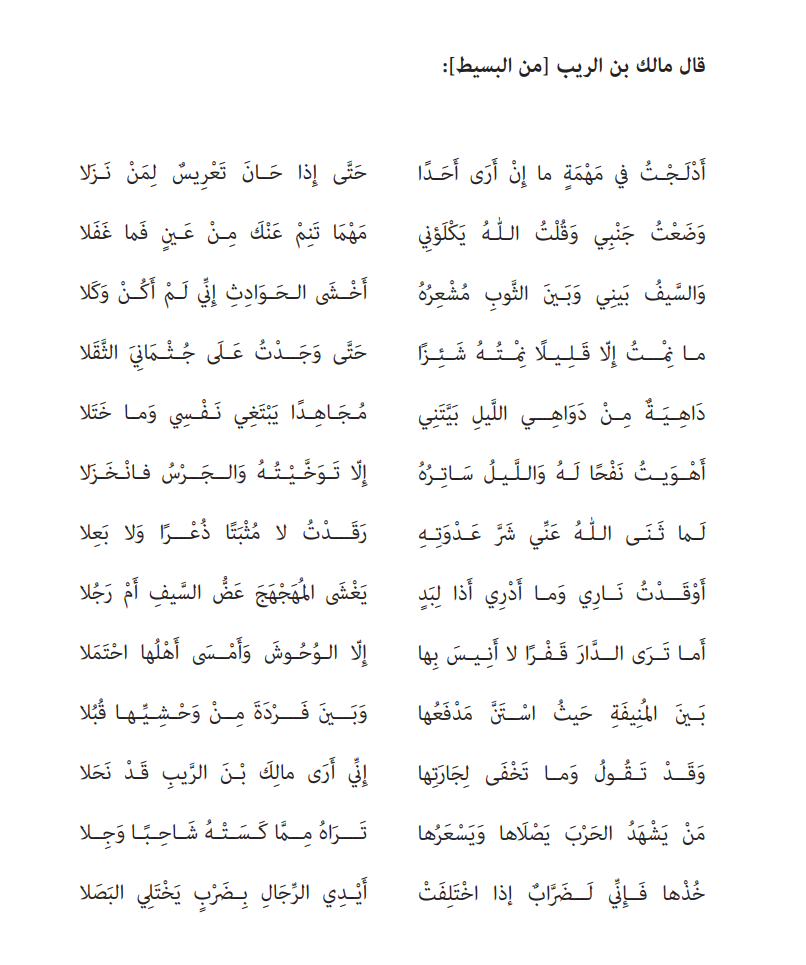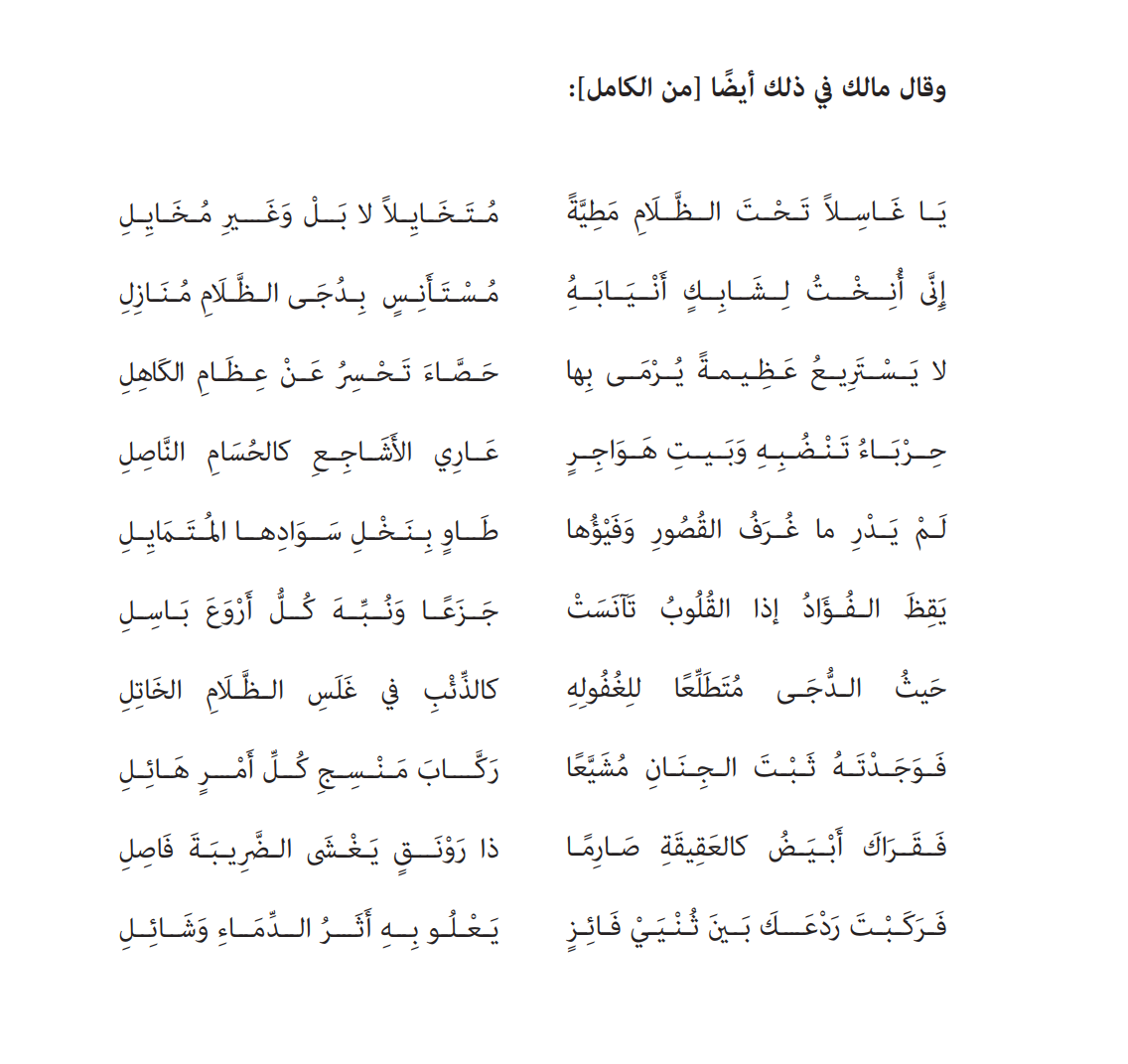
Mantis 18 (Spring 2020)
Translations
Mālik Ibn Al-rayb
translated from Arabic by David Larsen
Two poems over a dead highwayman
Meter: kāmil
O you who whip your mount under cover of the dark
and pretend to a knight’s hauteur: You were no contender.
I have knelt over the beast of interlacing teeth
that sought my company in the dark, for a fight spoiling.
So when disaster comes without a mane, [nothing but a man]
bare-shouldered, it cannot take away the calm
of the chameleon on his branch, knuckles bare as bladed swords,
nor the chameleon of a house abandoned by women.
Unknown is the shade of thick-walled upper rooms
to him who rides a palm of the nodding grove.
Some hearts are prone to panic, but the chameleon just takes note
of news that twists the face of the startle-ready.
When darkness takes away true knowledge of the world,
rearing up like the deceiving wolf,
you’ll find him brave and constant on the inside of himself,
a ready master of the weave of dire affairs.
Then you’re greeted with a cut like a bolt from my bright bisector,
and the blow is severing, and you are stunned,
and facefirst down you go, before there lands a second blow
to stain the upraised victor’s blade and dye the ground.
Meter: basīṭ
Afoot by night in a desert where I saw no one,
I roved until the time came for a stay.
I laid me on my side and said, “God will protect me.
When no eye watches over you, then He will.”
Under my blanket lay my sword, whose touch
strikes mortal fear. [After all,] my defense is up to me.
I slept but little. My sleep was fitful. Then
I felt my body pressed on by a weight.
My attacker used no stealth in seeking my person.
Of all the night’s calamities, this one was mine.
Through night’s dark curtain ran my blow
—the blow hit home!—and there was silence.
I lay back down. God had averted my aggressor.
I was not dazed, nor stiff with fear.
I kindled my fire. Did it wear a mane? I couldn’t tell.
Had my sword cut down a man, or a cried-at lion?
Do you see the abode made waste, where
only animals visit? Its folk packed their belongings
when they left the area between al-Munīfa’s coursing channel
and Farda facing its left bank.
“I see that Mālik ibn al-Rayb is growing thin.”
So would [my lady] to her neighbor say.
But the hothead schooled in war who comes to interrupt my peace
will blanch and turn timid [before we’re through].
Try it and see! When there is combat, my arms are in it,
cleaving to the white center [of men’s bodies] and clean through it.
MĀLIK IBN AL-RAYB (d. 677 CE) was an Arab bandit-poet of the first century of Islam. His exploits were made into a 2016 miniseries starring the late Yasser Al Masri. Mālik’s poems in this issue commemorate an assault sprung on the poet as he slept in one of his hideouts. The place names mentioned are Central Arabian, belonging to Tamīm who were Mālik’s tribe, but the incident seems to have taken place in Khorasan.
DAVID LARSEN is a poet and translator of Classical Arabic. At UC Berkeley he studied Comparative Literature, and at NYU he
teaches in Liberal Studies. His translation of the Names of the Lion of Ibn Khālawayh (Wave Books) received the 2018 Harold Morton Landon Translation Award from the Academy of American Poets. With the poems of Mālik, David is pleased to thank Geert Jan van Gelder for his timely counsel.


